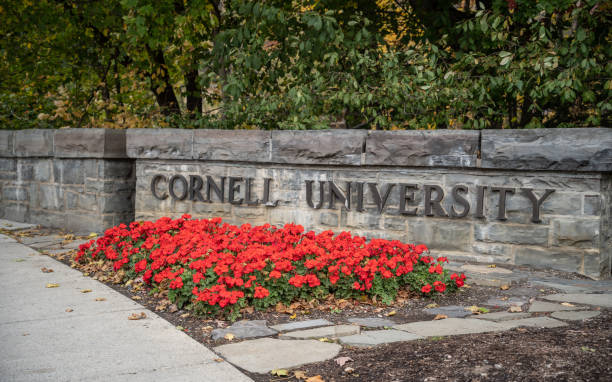Does Cornell Offer Merit Scholarships
When planning for college, one of the biggest questions students and families face is how to fund a quality education. Scholarships, particularly merit scholarships, can make a significant difference in making top-tier universities more accessible. But what about prestigious schools like Cornell University? Does Cornell offer merit scholarships for exceptional students?
This article by Elian Arthur will explore the nuanced world of merit scholarships, explain what they are, and focus on what Cornell University has on offer as far as scholarship is concern. We’ll also provide tips to help you access such opportunities and maximize financial aid options.
What Are Merit Scholarships?

Merit scholarships are financial awards offered to students based on their achievements, talents, or academic performance—not financial need. These scholarships often recognize a combination of academic excellence, leadership, extracurricular involvement, and special talents like music or athletics.
Unlike need-based financial aid, which depends on your family’s financial situation, merit scholarships are typically awarded regardless of income. They can come from colleges, private organizations, or nonprofit foundations and can significantly reduce the cost of tuition and related expenses.
For many students, merit scholarships represent more than just a monetary benefit. They’re also a mark of distinction, recognizing the hard work and dedication poured into academics or extracurriculars throughout high school.
Does Cornell Offer Merit Scholarships?
Now, the big question—does Cornell provide merit scholarships? The short answer is no, Cornell does not offer traditional merit-based scholarships.
Cornell’s financial aid policy is focused on meeting the demonstrated financial need of its students. This approach ensures that every admitted student has access to a Cornell education, regardless of their financial circumstances. The university follows a need-blind admission policy for U.S. applicants, meaning financial need does not influence admission decisions.
Instead of merit scholarships, Cornell provides need-based financial aid packages that may combine grants, loans, and work-study opportunities.
Why Doesn’t Cornell Offer Merit Scholarships?
Cornell, like many Ivy League universities, prioritizes need-based aid to promote access and equity. These institutions often have substantial endowments that allow them to focus on providing aid to students from low- and middle-income families. By doing so, they aim to create a diverse student body and ensure that financial barriers don’t limit access to their world-class education.
If you’re seeking scholarships based on merit alone, you may need to look beyond Cornell’s financial aid office. The good news? There are other ways to significantly reduce costs, which we’ll touch on later.
ALSO READ:
Cornell’s Scholarship Philosophy
Cornell University adopts a need-aware approach to financial aid. The university strongly believes that financial circumstances should not hinder a student’s access to quality education. For that reason, Cornell prioritizes need-based scholarships over traditional merit-based awards. The goal is simple yet impactful—making education accessible to students who may not have the financial means to cover the full cost.
Types of Scholarships Available at Cornell

Need-Based Scholarships
Cornell’s financial aid philosophy is rooted in providing need-based scholarships to ensure that admitted students can afford their education:
- These awards are determined based on a family’s financial need as evaluated by the Free Application for Federal Student Aid (FAFSA) and the CSS Profile.
- Students from families earning less than $60,000 annually can expect significant financial support, often covering most tuition costs.
Merit-Based Scholarships
While Cornell places more emphasis on need-based aid, there are still opportunities that recognize achievement through specific avenues:
- Cornell Tradition Fellowship: While technically not a purely merit-based scholarship, this program celebrates students who combine academic excellence with significant work and service contributions. Participants receive financial and programmatic support.
- External Merit Scholarships: Cornell encourages students to apply for external merit scholarships, which can complement their need-based aid package. These are typically offered by private organizations and foundations.
Why Does Cornell Focus on Need-Based Aid?
At Cornell, the philosophy is clear—financial support should focus on offering a level playing field to all admitted students, regardless of socioeconomic status. By emphasizing need-based financial aid, Cornell addresses systemic inequality and ensures access for talented, driven students from diverse backgrounds.
If you’re curious about why this approach is preferred, learn more on Cornell’s financial aid philosophy page.
Major Scholarship Programs at Cornell
The Cornell Tradition Program
The Cornell Tradition Program recognizes high-achieving students who balance academic excellence with significant contributions through work or service. Participants in this program receive a stipend that supplements other forms of financial aid. This program is highly regarded and fosters a spirit of commitment to community and hard work.
Endowed Scholarships
Cornell also offers endowed scholarships funded by alumni and donors who want to support future generations of students. These scholarships are often earmarked for specific fields of study or community backgrounds. For example:
- The Tata Scholarship for Students from India: Supports exceptional Indian students who demonstrate financial need and a desire to lead.
Find a full list of available scholarships on Cornell’s endowed scholarships page.
External Scholarships and Cornell
How External Scholarships Work
External scholarships are another great resource to fund your Cornell education. Students can apply for scholarships from organizations, companies, or foundations. These scholarships are often awarded based on achievements, community involvement, or unique criteria set by the provider.
The great news? External scholarships can typically be combined with Cornell’s need-based financial aid, helping cover additional costs like books, supplies, and room and board.
Examples of External Scholarships
Here are a few well-known external scholarship programs:
- National Merit Scholarships
- Gates Millennium Scholars Program
- Horatio Alger Scholarship
Cornell also works closely with students to ensure these external awards are effectively integrated into their financial aid packages.
Explore more resources on external scholarships here.
Scholarships for International Students

Opportunities for International Students
Cornell takes pride in its commitment to international students. While financial aid for international students is limited compared to domestic students, several scholarships are available, such as:
- The Tata Scholarship for Indian Students, as previously mentioned.
- The Cornell International Endowed Scholarship Program, tailored for students demonstrating financial need.
How to Apply
International students must complete all required documentation, including the CSS Profile, and any country-specific forms listed on Cornell’s international financial aid website.
Learn more about applying as an international student on Cornell’s dedicated page.
How to Apply for Scholarships at Cornell
Step-by-Step Application Guide
- Complete Required Forms: Fill out the FAFSA and CSS Profile by the stated deadlines.
- Prepare Documentation: Gather financial records such as tax returns and other proof of income.
- Monitor Deadlines: Keep an eye on scholarship and FAFSA deadlines.
- Search for External Scholarships: Complement Cornell’s aid with external opportunities.
Common Mistakes to Avoid
- Missing deadlines.
- Providing incorrect or incomplete financial information.
- Overlooking external scholarships that could boost funding.
Use Cornell’s financial aid checklist to stay on track.
Additional Financial Aid Options
Scholarships aren’t the only way to fund a Cornell education. The university also offers:
- Grants: Need-based and do not require repayment.
- Loans: Low-interest options for students and parents.
- Work-Study Programs: Allow students to earn money during the academic year.
Visit Cornell’s financial aid page for detailed information.
The Role of FAFSA and CSS Profile
Cornell relies on both the FAFSA (for U.S. citizens) and the CSS Profile to assess aid eligibility. Submitting these forms early is crucial to secure maximum aid.
Real Stories from Cornell Scholarship Recipients
Cornell’s commitment to financial aid has empowered countless students to overcome barriers. For example:
- Nicole S. used the Cornell Tradition Fellowship to fund her engineering degree, graduating debt-free.
- Rahul T., an international student, relied on a combination of endowed and external scholarships to complete his studies in global development.
You, too, can join the ranks of these incredible success stories.
Frequently Asked Questions
- Does Cornell offer full-ride scholarships? While rare, students with demonstrated financial need may be awarded packages that cover their entire cost of attendance.
- Can I combine multiple scholarships? Yes, Cornell allows scholarships to be combined with other aid.
- What’s the deadline for scholarship applications? Deadlines align with admission application timelines. Check Cornell’s website for specifics.
For more FAQs, visit Cornell’s financial aid FAQ page.
Conclusion

Merit scholarships can certainly ease the financial burden of college, but they aren’t the only route to funding a world-class education. While Cornell doesn’t offer merit-based aid, its strong commitment to need-based financial assistance ensures access for talented students from all income levels.
Start planning now by researching external scholarships and crafting a standout profile. If Cornell is your dream school, familiarize yourself with its financial aid process and apply early.
Don’t forget—there’s a network of opportunities waiting for you beyond Cornell. Search for scholarships, grants, and programs aligned with your achievements and goals.
If you found this guide helpful, share it with a friend who’s preparing for college applications! Subscribe to our newsletter for insider tips on scholarships and financial aid planning.
Start your application today and take the first step toward a brighter future. Visit Cornell’s financial aid page now.







